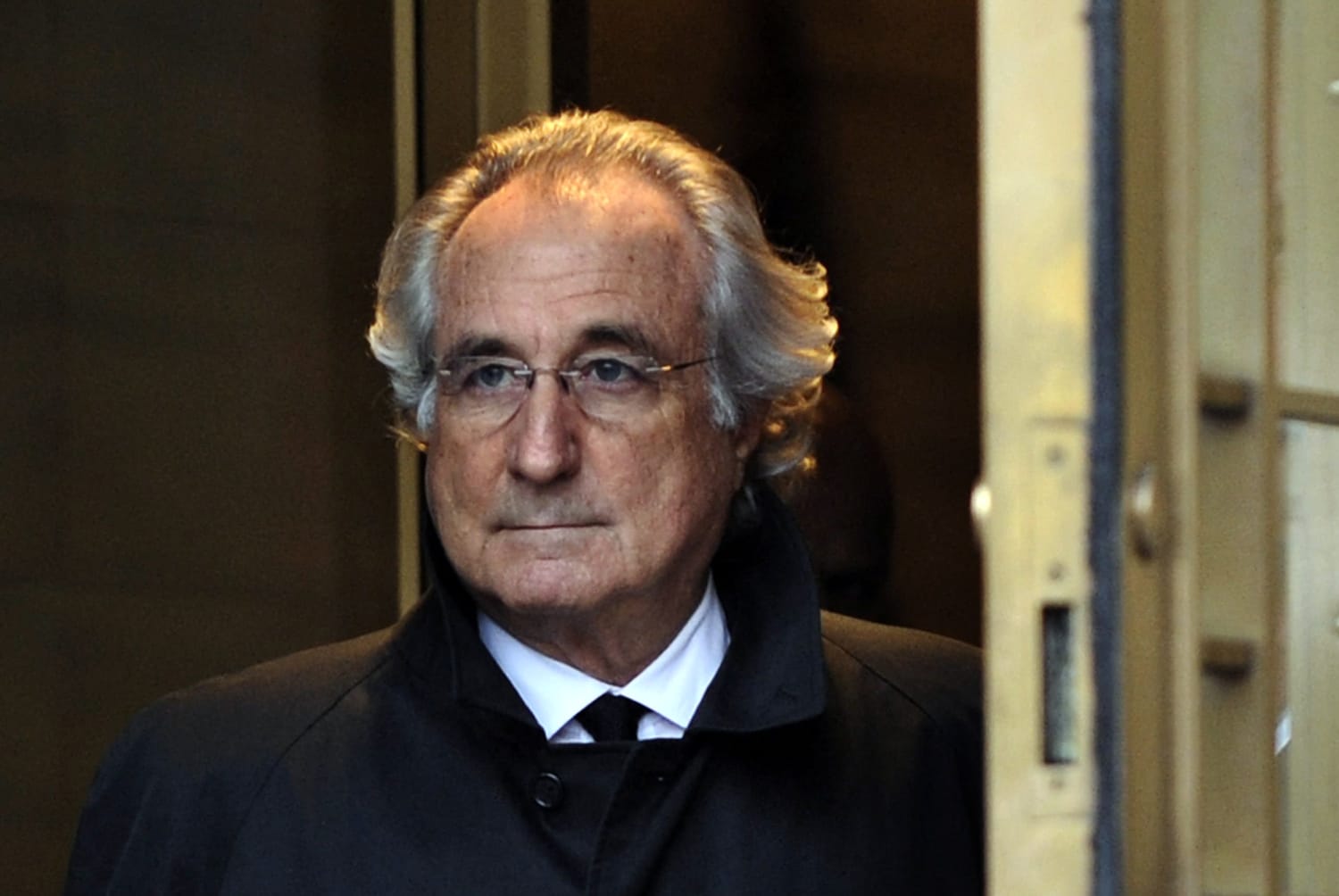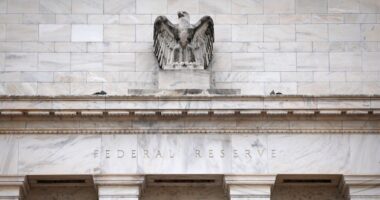Stephanie Halio was watching television Wednesday morning at her home in Boca Raton, Florida, when the face of the man who she says turned her life into a nightmare flashed on the screen.
She quietly absorbed the news: Bernie Madoff, the convicted Wall Street swindler who orchestrated the largest Ponzi scheme in financial history, had died in prison at age 82.
“I’m really sorry he died,” said Halio, 78. “I couldn’t wish enough bad things on him. I’m sorry he died, because I would have wanted him to stay in prison for 100 years.
“Death is too good for him,” she added.
Halio, a retired real estate agent, was one of about 37,000 investors worldwide who were defrauded through Madoff’s elaborate financial ruse, which had reached an estimated $65 billion when he was arrested in 2008.
The death of Madoff, whose health had been deteriorating behind bars in recent months, quickly reverberated Wednesday among his victims, some of whom said they see it as closing a chapter in a winding saga that plunged their families into financial turmoil. Many of his victims were elderly and many were Jewish philanthropists, and their bank accounts crumbled without warning, cheated by a man who built a lavish lifestyle of penthouses and private jets.
For some, Madoff — and what his name evokes — will haunt them even in death.
“He did a lot of bad things to a lot of people,” said Steven Falk, a retired special education teacher who lost 80 percent of his savings. “Of all the people in jail, I’m glad he died in jail.”
In 2009, Madoff pleaded guilty to 11 federal felonies, including securities fraud and investment adviser fraud, and was sentenced to 150 years in prison. Among those reported to have been duped were former Walt Disney Studios Chairman Jeffrey Katzenberg, Nobel Peace Prize winner Elie Wiesel, talk show host Larry King and director Steven Spielberg.
But also buried among the lists of Madoff’s wealthy clients, celebrities and politicians were people like Halio, who dutifully saved money from every paycheck and believed that investing with Madoff and his financial advisory business was a sound strategy for retirement.
Halio said she and her husband began investing in the 1980s in an account that was associated with Madoff, although the couple didn’t realize his involvement at the time. Their investment was paying conservative but consistent returns that appeared to be aboveboard and never set off alarms — until December 2008, when “our whole world disappeared in an instant,” she said.
Ahead of Madoff’s sentencing, Halio wrote in a letter to the judge — as one of more than 100 victims asking for Madoff to be punished severely — that she was hurt by the assumption that she and her family were similarly driven by greed.
“We worked and saved for all of [our] lives to be secure in our old age and this monster, this criminal, Bernie Madoff took everything away from tens of thousands of people across this country and the world,” Halio wrote, adding that she struggled to rebuild her family’s finances and became depressed.
Halio said Wednesday that she had given little thought to Madoff over the years, until March 2020, when she learned that he was seeking “compassionate release” from the North Carolina facility where he was being held.
“I flipped when I heard that one,” she said.
Prison authorities said Madoff was likely to die in the next 18 months, suffering from kidney disease and other chronic medical conditions. His cause of death is pending a medical examiner’s review.
In telephone interviews with The Washington Post last year, Madoff expressed remorse and said his dying wish was to repair his relationships with his grandchildren.
Abby Frucht, whose elderly parents lost their life savings to Madoff before their deaths, said her father had been too trusting of Madoff. But she had never thought of him as “evil,” rather as someone motivated by an insatiable greed.
When it comes to moving on from what Madoff did, “I still don’t really use the term ‘forgiveness,'” Frucht said. “And now he’s just gone.”
Falk, who became involved with Madoff’s investments in the 1980s, said it would be “emotionally unhealthy” to continue harboring resentment. The larger takeaway, he said, was not so much about Madoff but about learning to make peace with himself.
“I don’t know if I’d ever say the words ‘I forgive you, Mr. Madoff,'” Falk said. “But I forgive myself for making a big mistake.”
Source: | This article originally belongs to Nbcnews.com











